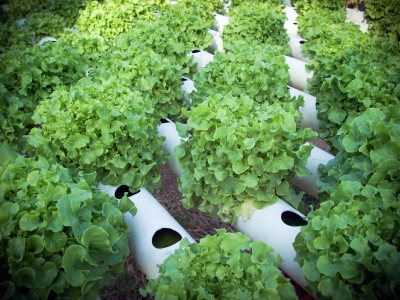 As a physician, I truly believe that you are what you eat. While a healthy diet cannot cure most medical problems, it can keep your body in optimal condition to fight disease. Just think of food as fuel. If you give your body high quality fuel, it will run better and longer than if you feed it with junk.
As a physician, I truly believe that you are what you eat. While a healthy diet cannot cure most medical problems, it can keep your body in optimal condition to fight disease. Just think of food as fuel. If you give your body high quality fuel, it will run better and longer than if you feed it with junk.
Many patients ask me what they should eat to stay healthy, so I regularly research the latest news in the field of nutrition. You have probably been told since childhood to eat more vegetables. It is well known that vegetables are nutritional powerhouses loaded with antioxidants, vitamins and minerals that confer many health benefits.
Less than ten years ago, nutritionists recommended that we eat five servings of fresh produce each day. Recently that number went up to 8 to 10 recommended servings! Personally I feel that’s a little excessive. However, I can’t deny that our bodies need the nutrients that high quantities of vegetables and fruit provide. That is where hydroponics comes into the equation. Let me tell you about this innovative growing method so you can reap the benefits of an optimal diet.
A New Way to Grow
The term, “hydroponics,” comes from the Greek words for “water” and “work.” Hydroponic produce is simply grown without soil. The water does the work. This method goes all the way back to the ancient “hanging gardens” of Babylon. Today, many commercial growers use the hydroponic method to grow plants year round in greenhouses. The two leading countries in this technology, Holland and Canada, are able to consistently grow healthy plants all year round.
How is this possible?
We typically believe that the roots of plants must take hold of soil in order to thrive. This is not quite true. Field grown plants take hold of soil because that is the only way a plant can obtain the nutrients it needs to grow. Nitrogen, potassium and phosphorus present in soil are delivered through the roots when water is introduced. Water dissolves the nutrients that may be present in the soil, and the roots suck up the water. Farmers run into problems when soil loses its nutritional value too quickly, or when it does not contain enough vitamins and minerals to properly nourish crops in the first place.
The Hydroponic Solution
In hydroponics, a consistent supply of nutrients is delivered to the plants via water. The nutrients are balanced by the grower to provide optimal nourishment to the individual crops. Since he is no longer relying on soil for these nutrients, the grower can cultivate crops in a greenhouse, using specially designed apparatuses.
The hydroponic method solves the problem of inconsistent soil, hostile weather conditions and pests, but it also produces crops with higher nutrient levels. Recent studies have shown up to a 50% increase in vitamins and minerals in tomatoes grown hydroponically versus field grown tomatoes.
Bell peppers grown with hydroponic technology exhibited levels of some B vitamins that were nearly triple the levels in traditional plants. That’s pretty impressive!
It is easy to see that consuming these hydroponic crops will benefit our bodies. With hydroponics, it is no longer necessary to eat salad twice a day just to get our daily servings of vegetables. An additional benefit of the hydroponic growing method is that pests are not an issue. Pests live in the soil, and the hydroponic environment is sterile. This means harmful chemicals and pesticides need never be used.
Look for hydroponic produce in your market. Greens such as arugula, mesclun and spinach are often grown this way, as well as tomatoes and strawberries. If you don’t see it, ask the manager to add it to the stores inventory. Fruits and vegetables with high nutrient contents are a win for your health.
Stay Well,
Mark Rosenberg, M.D.
